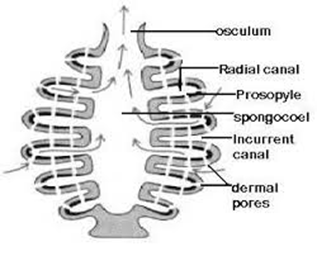Understanding Blood, Rh Factor & Lymph – Biology Guide
- Get link
- X
- Other Apps
Understanding Blood Components, Rh Factor, and Lymph: A Vital Look into Human Circulation
The human body is a complex system, and one of the most essential components sustaining life is blood. Blood not only transports oxygen and nutrients to various parts of the body but also plays a crucial role in defense, waste removal, and temperature regulation. Let’s explore the vital components of blood, the significance of Rh factor in transfusions and pregnancy, and the role of lymph in maintaining body balance.
What Is Blood?
Blood is a special connective tissue composed of a liquid matrix called plasma and formed elements such as red blood cells (RBCs), white blood cells (WBCs), and platelets.
Plasma:
Plasma is a straw-colored liquid that constitutes about 90–92% water and 6–8% proteins. These proteins include fibrinogen, globulins, and albumin.
-
Fibrinogen plays a key role in blood clotting.
-
Globulins are involved in the defense mechanism of the body.
-
Plasma also contains vital minerals (Na⁺, Ca²⁺, Mg²⁺, HCO₃⁻, Cl⁻), glucose, amino acids, lipids, and hormones.
Plasma without clotting factors is known as serum.
Formed Elements of Blood:
Erythrocytes (Red Blood Cells - RBCs):
RBCs are biconcave in shape and lack a nucleus. Their red color is due to hemoglobin, an iron-containing protein essential for oxygen transport.
-
An average healthy individual has about 12–16 gm of hemoglobin per 100 ml of blood.
-
The lifespan of RBCs is about 120 days.
-
They are produced in the bone marrow, and a healthy adult has about 5–5.5 million RBCs per cubic mm of blood.
Leukocytes (White Blood Cells - WBCs):
Also known as WBCs, these are colorless and fewer in number compared to RBCs.
They are broadly classified into:
-
Granulocytes (Neutrophils, Eosinophils, Basophils)
-
Agranulocytes (Lymphocytes, Monocytes)
-
Neutrophils are phagocytic in nature and help fight infections.
-
Eosinophils and Basophils play roles in allergic responses. Basophils secrete histamine, serotonin, and heparin, which aid in inflammation and immunity.
-
Lymphocytes (T-cells and B-cells) are critical to the immune system, helping in antibody production and cell-mediated immunity.
-
Monocytes are also phagocytic and help fight pathogens.
Platelets (Thrombocytes):
Platelets help in blood clotting.
-
A normal count ranges between 1,50,000–3,50,000 per mm³.
-
A decrease in platelets can lead to clotting disorders.
Rh Grouping and Its Importance
The Rh antigen was first discovered in Rhesus monkeys, hence the name. If this antigen is present on a person’s RBCs, they are termed Rh-positive (Rh⁺); if absent, they are Rh-negative (Rh⁻).
If an Rh⁻ person receives Rh⁺ blood, their body produces antibodies against the Rh antigen, which can cause complications. Therefore, blood group compatibility is crucial before transfusion.
Erythroblastosis Fetalis
Erythroblastosis fetalis is a serious condition that occurs when there is Rh incompatibility between a Rh⁻ mother and a Rh⁺ fetus.
-
During pregnancy or delivery, fetal Rh⁺ blood cells may enter the mother's bloodstream, leading her immune system to produce antibodies.
-
In subsequent pregnancies, these antibodies may cross the placenta and attack the fetal red blood cells, causing hemolytic anemia in the fetus.
This condition is preventable with proper medical care and Rh immunoglobulin (RhIg) injections.
The Role of Lymph
Lymph is a clear fluid that enters the lymphatic capillaries from tissues. It is similar to blood plasma but has less protein content. It flows through lymphatic vessels and contains lymphocytes and granulocytes.
Functions of Lymph:
-
Distributes nutrients and oxygen to tissue cells.
-
Removes nitrogenous waste and CO₂.
-
Destroys harmful pathogens via lymphocytes.
-
Protects the body from diseases.
-
Helps in maintaining body temperature.
Conclusion
The human circulatory system, comprising blood and lymph, ensures that every cell receives adequate nutrients and protection. Understanding components like plasma, RBCs, WBCs, and the Rh factor is vital for safe medical practices, especially blood transfusions and pregnancy management. Similarly, the lymphatic system plays an understated yet essential role in immunity and homeostasis. Awareness of conditions like erythroblastosis fetalis emphasizes the need for preventive care and the marvel of biological compatibility in human life.
Top B.Sc Topics In Biology
- Get link
- X
- Other Apps



This comment has been removed by a blog administrator.
ReplyDelete